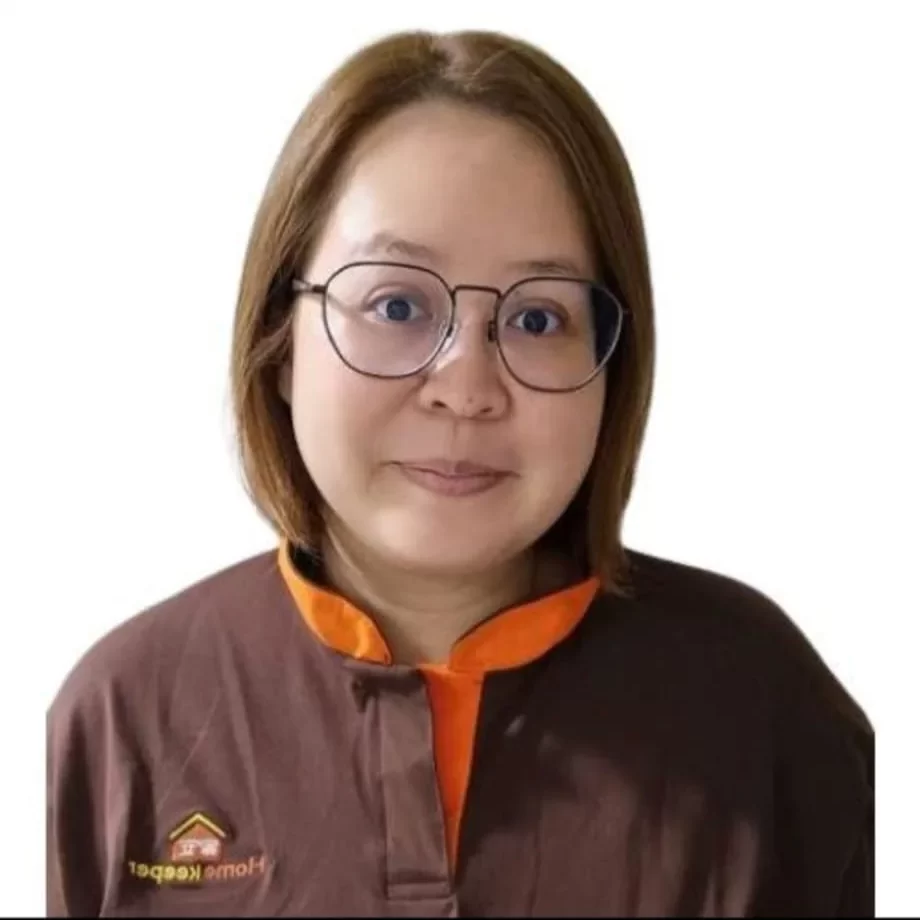In Singapore’s rapidly ageing society, foreign domestic workers (FDWs), or domestic helpers in short, are increasingly being hired as primary caregivers for seniors. While most of the helpers we interviewed possess great compassion and strong work ethics, the role of an elderly care helper is fundamentally different from general housekeeping or with infant care.
It is a demanding, emotionally complex job that requires a blend of good patience, communication skills, and clinical awareness qualities that are often impossible to identify straightaway during the hiring process.
At Homekeeper, we conduct a series of interviews for each helper to ensure that their answers are consistent and without flaws. And we believe in full transparency with our clients when we share the helper’s profile.
The Undervalued Role of Companionship and Communication
For many elderly persons in Singapore, companionship is a huge, often unspoken, part of the helper’s job. While official duties involve things like showering, toileting, and medication reminders, the reality is that the helper often serves as the senior’s main social contact everyday.
This is where common language becomes critical. A maid who can speak the local language or a familiar dialect (like Hokkien, Teochew, or Cantonese) is not just convenient; they are often an asset to the elderly and the family members. If a senior can communicate their feelings, their history, or even a simple request in their mother tongue, it fosters a sense of security and belonging. It helps to build trust and rapport quickly.
This deep connection prevents isolation and allows the helper to become a true friend to the elderly, which is vital for their mental well-being. Without this linguistic and cultural bridge, the helper’s ability to provide emotional support is severely limited.
Commentary: Moving past transactional relationships between elderly care FDWs and employers
As reported in past Singapore news, elderly who spend the majority of their days alone with the domestic helpers sometimes face immense risks. One eye-catching example reported by a local news source, a helper was jailed for injuring her bedridden elderly, by slapping and stomping on her chest.
Later in the same year, the news channel had a commentary sharing personal experience of how elderly care maids are often underappreciated, sometimes even going through massive stress and emotional burnout. Working as an elderly care helper goes beyond just an employment job.
Homekeeper’s Take
We often see cases where our clients request for additional maid counselling, or helpers complaining to our trainers because they are unable to settle in with their elderly employers. And most of the time, the reasons are unrelated to job experience or how well or badly they did in their roles. At Homekeeper, we always remind our clients the following:
- Include your elderly parent or grandparent to the interview if you can. The elderly may not need to speak if he or she does not want to, but being able to simply look at the helper in person, or in the video call will help a lot in the selection process.
- Give both the elderly and the helper time to settle in with each other. Having a new maid in the house is a big thing, this new person stays with you day and night, so it is crucial to be comfortable with each other around the house.
- Act as a mediator when conflicts happen. Step in when you observe things are overboard. Try your best to give an unbiased perspective when issues occur. Understand that the helper is here to help, but she needs to be supported too.
The Ambiguity of Deteriorating Health
One of the most obvious anxieties in elderly care is the ambiguity that comes with the job. Unlike childcare, where a child’s needs grow gradually, the health of an elderly person can deteriorate suddenly.
A helper may be hired to assist a relatively healthy senior, only to find within a few months that the senior has suffered a stroke or a fall, becoming bedridden and requiring complex tasks like tube feeding or open wound care. A SingHealth Polyclinics study highlighted this gap, finding that nearly half of FDWs lacked the confidence or skill to perform essential healthcare tasks like blood pressure or blood glucose monitoring.
In the most challenging and heartbreaking scenario, the senior may pass away. When a helper’s charge is no longer around, her job effectively becomes redundant overnight. She is suddenly without a care recipient, creating tremendous job and financial insecurity for her and her family back home, despite having dedicated months or years to compassionate service.
This emotional and contractual instability, the constant juggling of personal care, companionship, patience, and the ever-present risk of sudden change, is why the demanding, high-risked role of an elderly care helper is truly not suitable for everyone.
About the Author
Linda Seh has over 20 years of experience in the Employment industry. She takes the time to thoroughly interview each family and helper to understand their requirements, personalities, and preferences. Her intuition and insight has helped her make placements that result in lasting, harmonious working relationships. Linda now leverages this expertise and experience to simplify your search and ensure you find the ideal and qualified helper to become a valued member of your family.

